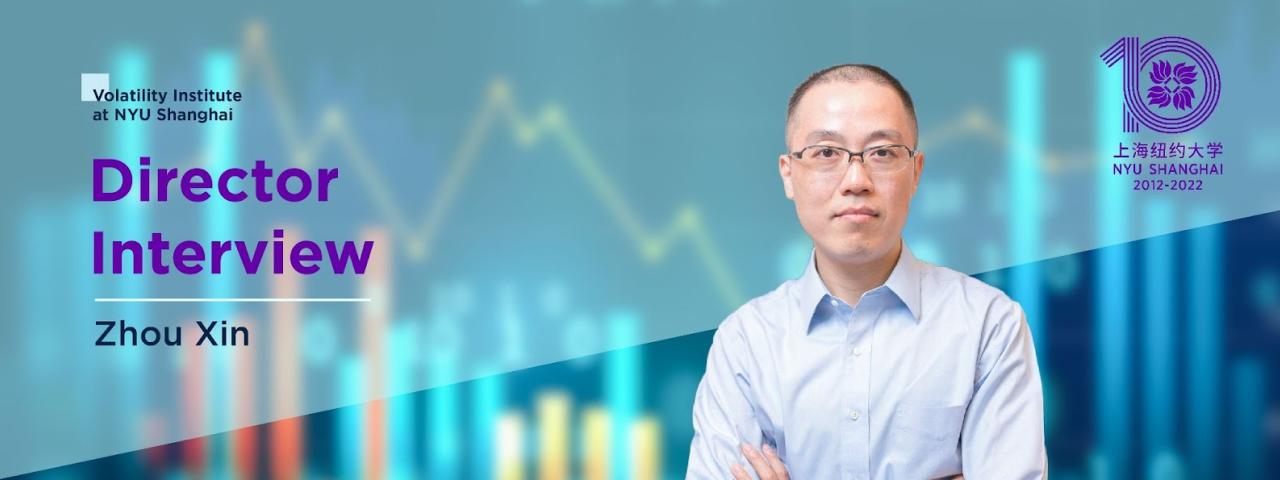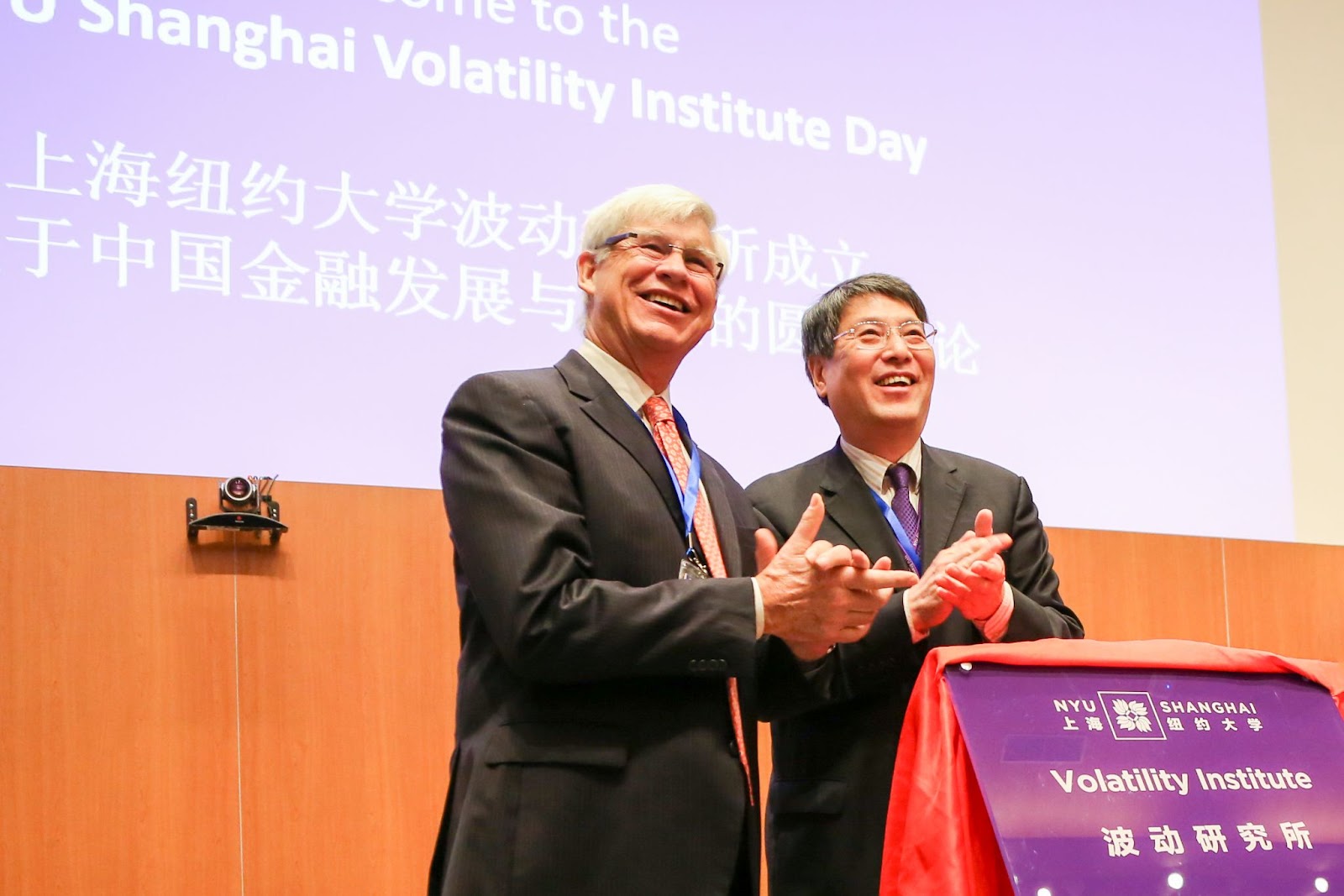
With the Chinese financial market’s rapid development and increasing complexity, studying risk management has become a significant need. The Volatility Institute at NYU Shanghai (VINS) was established in 2014 to examine the dynamic China market and how it influences and interacts with markets around the world. VINS specializes in risk research, particularly in stock and derivative markets, with a focus on generating forward-looking measures of risk. Zhou Xin, executive director of VINS, shared about the institute's development and current work.

Director Robert Engle and NYU Shanghai Chancellor Emeritus Yu Lizhong at the launch ceremony of VINS
Could you give us an overview of VINS?
VINS was founded in 2014. Back then, Vice Chancellor Jeffrey Lehman invited Nobel Laureate and volatility expert Robert Engle to input his expertise in risks into research on the Chinese market. Our primary goal is to provide timely financial information and analysis on market risks and situations to academics, practitioners, regulators, and policy-makers through innovative technology platforms and services.
VINS facilitates communication and collaboration between academia and industry, providing platforms for industry interaction and research that up with the latest trends. VINS organizes annual conferences, where financial experts discuss the current financial challenges and exchange on cutting-edge financial research development. Since 2018, VINS has collaborated with the Society for Financial Econometrics (SoFiE) to host the SoFiE Financial Econometrics Summer School, where renowned scholars deliver lectures on various topics to PhD students and junior faculty. VINS also produces a monthly Volatility Report, which provides analysis and insights into the fluctuations in China’s financial market, highlighting key trends and market hotspots.
What does the center's research focus on and why? In which areas do you intend to expand collaborations?
Our regular projects include studying indexes such as panic index “VIX” and skewness index “SKEW.” These indexes are forward-looking measures of risk based on options and stocks information, rather than historical data. Meanwhile, we’re constructing a tail risk index to measure extreme market events. These projects are part of our ongoing efforts to provide timely financial information and analysis on market risks and situations, such as risk modeling, forecast, and measurement. VINS aspires to contribute in a meaningful way to international financial policy by providing valuable insights into the health of financial markets from multiple perspectives.
In recent years, we have been putting more emphasis on environmental, social, and governance (ESG) investment research, which involves studying climate change-related transition risks. ESG investment, particularly investment in carbon emissions, is a hot topic in global academia and among financial institutions. International financial markets started to study it several years ago and we believe China should take part in it. VINS seeks to develop a China-focused analytical framework and predict how the situation may change in the future.
We plan to share our research findings with companies and institutions to help them prepare for future climate-related risks. Additionally, we aim to develop a systematic risk index for China related to climate change and explore opportunities for collaboration with institutions that have access to unique data to perform more comprehensive and detailed research. Currently, VINS is in talks with various financial institutions, including WIND, China’s largest financial data services provider, and we hope to develop more academic and industry contacts in the future.
How can financial research by VINS make an impact on the market?
We hope our insights will provide guidance to market regulators and practitioners over time. One of our strengths is our impartiality and professionalism, which makes our opinions more trustworthy. Regulators, stock exchanges and practitioners are more inclined to listen to us as we are not profit-driven.
For example, a few years ago, there was a debate about whether to develop a derivatives market. Some argued that the derivatives market caused market crashes. However, we provided insight that the underlying market caused reactions in the derivatives market, rather than the other way around. In the future, we also hope to participate more in risk management and risk control for large enterprises and financial institutions. We hope that our research knowledge can reduce unnecessary losses caused by risk or speculation.
Another example of the impact of our research is when VINS participated in internal research to predict the pricing of the first options offered on the Shanghai Stock Exchange, known as the SZ50 ETF Option. We used Engle's ARCH model, and the results showed a very narrow margin of error. This demonstrates that our insights can be applied to real-world scenarios and can have a tangible impact on the market.

